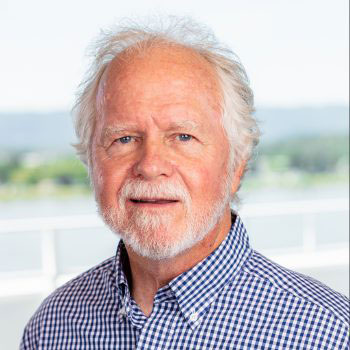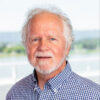Back to series



To See What You See
On Liturgy & Learning & Life
Click here to open a Print - Friendly PDF
One day last spring I was working at home. In point of fact, I was on the phone, talking to someone doing research on the meaning of religious faith in higher education. In the middle of the conversation my son Elliott and his roommate Seth Wispelwey walked in, on their way back to the University of Virginia after a spring break trip to New York City. It was a surprise; I hadn’t expected them. As I saw them, I smiled. Sometimes you have news for someone, that you KNOW is going to rock their world. Their eyes will grow huge, their jaws will drop, and a smile that comes from the deepest place will soon be ear-to-ear. Have you ever had news like that for someone?
And so, with significant delight and a pretense of innocence, I said to them, “Hey, do you have any interest in coming to a meeting with Bono this afternoon?” For two college students who love music, who care about ideas and what they mean for life, and who had made a pilgrimage earlier in the year to one of the first concerts in the Elevation Tour because they are big fans of the biggest band in the history of rock and roll, this was good news—close to gospel.
 Well, a couple hours later we walked into the Capitol buildings, and there he was: Paul Hewson himself, Bono, chief musician of the band U2. But he wasn’t there to sing “Where the Streets Have No Name,” or even to draw attention to his artistry or himself. Not for a moment, not for a million moments. Instead he wanted to talk about Africa, in particular, why Christians should care about Africa.
Well, a couple hours later we walked into the Capitol buildings, and there he was: Paul Hewson himself, Bono, chief musician of the band U2. But he wasn’t there to sing “Where the Streets Have No Name,” or even to draw attention to his artistry or himself. Not for a moment, not for a million moments. Instead he wanted to talk about Africa, in particular, why Christians should care about Africa.
The 25 or so in the room represented all different sectors of Washington life, all different kinds of vocations: the World Bank, the White House, the State Department, USAID, the Congress, World Vision, even the Council for Christian Colleges and Universities. There were politicians, journalists, medical researchers, economists, professors.
And Bono was remarkably humble, thanking us for taking the time to talk to him, with “flowers in my hair, and stars in my eyes.” At least he said, that is what we might assume about him. But then he went on to explain why his interest in Africa was something other than a passing fad, a celebrity cause—why in fact it grew out of his deepest commitments about the way the world is and ought to be, about his love for and loyalty to Jesus and the gospel of the kingdom.
As I looked around the room as he spoke, I was in awe of the expertise: people at the very pinnacle of their own vocations, some of the best of the best at what they do. World-class but not worldly, sophisticated but not cynical, to a person people who pray and work—day after day after day –to see the world the way that God does. And then, who choose to so form their own hopes and dreams, vocations and occupations, in ways which are faithful to that vision.
They are people who “get it”—as in, I wonder why she doesn’t “get it.” Or, he “gets it” doesn’t he? There is something about heart and mind together, in that assessment. They are people who are more than smart, because they understand that it is possible to get all A’s and still flunk life. In biblical imagery, they are people with ears that hear, and eyes that see. They are people who know that to know—a deeply biblical sense – means to be responsible, and that to be responsible means to care.
Dear brothers and sisters, they are people who understand that deeply Christian discipleship is marked by learning to see the world the way that God does, to know the world the way that God does, to love the world the way that God does.
That is what this psalm, number 123 is all about. In Eugene Peterson’s thoughtful meditation on the songs of ascent, A Long Obedience in the Same Direction, from which we are drawing these chapel themes, he directs us to a vision of service, particularly focusing upon the words, “As the eyes of slaves look upon the hand of their master, as the eyes of a maid look to the hand of her mistress, so our eyes look to the Lord our God, till he shows us his mercy.”
 Did you ever see the cartoon, set in a college classroom, where the professor fills up two whiteboards with mathematical calculations? You know, letters and numbers out the wazoo. It is a kind of math I left behind a long time ago, which is not to my credit! After the complex relationships between addition and subtraction, multiplication and division are set forth, and most of us find ourselves overwhelmed, not sure what to do with all that we have seen, there is a seemingly simple “equals” sign on the far side of the second board. And there is one word: whatever.
Did you ever see the cartoon, set in a college classroom, where the professor fills up two whiteboards with mathematical calculations? You know, letters and numbers out the wazoo. It is a kind of math I left behind a long time ago, which is not to my credit! After the complex relationships between addition and subtraction, multiplication and division are set forth, and most of us find ourselves overwhelmed, not sure what to do with all that we have seen, there is a seemingly simple “equals” sign on the far side of the second board. And there is one word: whatever.
Whatever. Whatever. Whatever. For many, that word captures our feelings as we look at the world, full of complex sadness and sorrow, multi-faceted injustice and evil. Simply said, we don’t know what to say or do, because we don’t know what to make of what we see. I meet students all over the world who feel this way. They do care, they want to engage God’s world, but when they touch it, when they see it and smell it, too often it crushes them, it overwhelms them in the complexity of its griefs.
Psalm 123 is a song born out of that anguish, out of that confusion. Brutality, arrogance, powerful people crushing powerless people, and no cheap answers to the political and economic and social brokenness. What to do? To whom do I look?
The psalmist says, “I look to you… I look to you for help! As the eyes of slaves look to the hand of their master, so our eyes look to you, Lord our God—until you show us mercy.”
To whom and to what do we look when the world presses in upon us, when incoherence and fragmentation seem all that is possible, if we are to be really honest? We don’t have much time this morning, but I want to reflect together on what we might learn from these heart-aching words. They are a lament, yes. But they are also a song of hard-won affection and respect. There is no final despair here. No deep-seated cynicism. These are words of trust. Lord, my eyes are fixed on you, I offer my heart to you because I trust you to show mercy. Have mercy on us, O Lord, have mercy!
One of the deep truths of the Bible is that we all, sons of Adam and daughters of Eve each one, see out of our hearts. It is no small thing that Calvin College sets forth, year by year, generation upon generation, this vision: to you, Lord, I give my heart, promptly and sincerely. These words represent the possibility of coherence, rather than incoherence—because we do see out of our hearts. These words represent the possibility of a life of integrity across the spectrum of our responsibilities as human beings, rather the inevitability of a fragmented existence—because we do see out of our hearts. Am I just a rat in the cage (Billy Corgan and the Smashing Pumpkins)? Should we all just eat, drink, and be merry, for tomorrow we die (The Dave Matthews Band)? An education at Calvin is set amidst the questions and tensions of life in a fallen world, and if it is worth the time and money it will speak into those questions and tensions with sensitivity and responsibility. The words set on the seal of the college give us a window into the possibility that belief and behavior in every arena of life can find its coherence in Jesus as Lord; that the truest integrity is always and everywhere found in offering myself to God, promptly and sincerely; that we can weave together liturgy, learning, and life,
The word liturgy seems to belong in a space like this. We speak of a liturgy for worship, meaning an ordering of worship, a way of worship. But the word itself is richer, if I can say it that way. It has to do with the whole of life, everyday, ordinary life. It comes from a Latin word which means, simply, service, the work one does on behalf of the community.
It is a good word for times like this, when the community of Calvin College gathers to sing and pray, to hear the word of God together. But it is also a good word for what happens when we leave this building and go to the ones next door, where philosophical questions are probed, where languages are learned, where counseling is done, where money is counted, where faculty are hired, where students are admitted, and on and on and on. Have you ever wondered about the possibility of a liturgy of learning, a liturgy of life? About the integral character of a heart given promptly and sincerely to God, and therefore a graceful seamlessness between liturgy and learning and life?
Well, I do, all the time. In a sense it is the question of my life, and so I am always looking for people who live this way.
Bono is this kind of person. How else do we make sense of songs like “Gloria” and “Grace,” how else do understand the almost sacramental and amazingly skillful character of his music, so much so that he is perhaps the most famous artist in the world today, and at the same time know that he has committed himself to Africa for the long haul, for a long obedience in the same direction? As a good friend of mine at the World Bank put it, after the meeting last spring, “You know, Bono is serious, isn’t he?” Can Bono save the world? No, never. That was Time’s cover story and question the week of our meeting last spring. He will not save the world, but he can—in his own words –write songs that make the light a bit brighter, that tear a little corner off of the darkness.
Brian is this kind of person too. Born out of the soil of a community in northern New Jersey where worship, worldview, and way of life were equally honored, he came to Calvin College as a pre-med student, and found here professors and peers who nourished that seamless character of faith. Years later he is a professor of medicine at the University of Virginia in Charlottesville. Brian is extremely competent, and very passionate, but honestly humble too. I have never heard him say this, but those who know say about him: he knows more about AIDS in Africa than anyone else in America, maybe the world.
 When the meeting was called for March 12, last spring, I called Brian and invited him to come. I knew that Bono’s love for Africa, particularly the project he is calling DATA, would be of more than passing interest to Brian, given his own commitments and cares. And so he came. When he got there, he was surprised to see his son, Seth, my son’s roommate and friend. Yes, Seth Wispelwey is the son of Brian Wispelwey.
When the meeting was called for March 12, last spring, I called Brian and invited him to come. I knew that Bono’s love for Africa, particularly the project he is calling DATA, would be of more than passing interest to Brian, given his own commitments and cares. And so he came. When he got there, he was surprised to see his son, Seth, my son’s roommate and friend. Yes, Seth Wispelwey is the son of Brian Wispelwey.
25 years later, Brian is still offering his heart promptly and sincerely to God, in his worship, his worldview, and his way of life. By the grace of God, Brian “gets it.” He understands that a Calvin degree has to mean something, it has to have consequence for the world, that his learning and his life are rooted in the reality that we are called to see the world as God does, to know it in its glories and shames, and to still care for it—Brian understands that.
And so, in imitation of Christ, day after day Brian takes up his scientific skill to serve the aches and pains of the world. In imitation of Christ, he sees places and people who need his gifts, his passions, and his commitments, and takes up the towel of medical research, giving his service to the university and to the world.
So I try to be like you
Try to feel it like you do….
I can’t wait any longer
I can’t wait ‘til I’m stronger
Can’t wait any longer
To see what you see
When I look at the world
It is in the imitation of Christ that each of us finds our true vocation—butcher, baker, candlestick maker. Or musician and medical school professor. Simply said, Jesus came to serve, not to be served. And the text in John 13 is perhaps the clearest window we have into the meaning of that service, as in it we have the incarnation of God’s response to the lament of Psalm 123. Show us your mercy, and God did, in the flesh.
The passage makes an important point for those of us here at Calvin, working our way through a curriculum shaped by words like creation, fall, and redemption. John writes that it was because Jesus was situated in the grand story of God’s work in the world himself embodying the history of redemption from creation to consummation—knowing where he had come from and where he was going, that he had eyes to see, that he could make sense of the responsibility before him, and therefore gave himself in service to meet the need of his brothers, washing their feet, their dirty, dusty feet. Because Jesus knew, he cared—a morally meaningful response was built into the very act of knowing.
Remembering this is important for all of us, perhaps especially for those who wonder whether the Calvin College dreamed all this up, this creation, fall, and redemption stuff! The good news is that it is history, it is the way the world really is. And these ideas have legs. They are the contours for human life under the sun. They were for Jesus, they are for Bono and Brian, and they will be for us—taking up towels as we labor together as an academic community in class and out, living as citizens in our time and place, and praising and praying and pondering the meaning of God’s work in history for our lives and for the whole of life.
God of heaven and earth, you who see the sparrows that fall and the diseases that destroy, who see the horrible complexity of our very broken world— physiologically and politically, economically and aesthetically—and still choose to love it, and us, give us eyes to see what you see, that we might find ways to creatively and courageously serve you with gladness and singleness of heart—in the name of the Father, the Son, and the Holy Spirit, Amen.

Steven Garber
ProfessorSteven Garber is the Senior Fellow for Vocation and the Common Good for the M. J. Murdock Charitable Trust. As a teacher, he has recently served as Professor of Marketplace Theology and Director of the Masters in Leadership, Theology and Society at Regent College, Vancouver, BC. he is the author of several books, including Visions of Vocation: Common Grace for the Common Good, his most recent is The Seamless Life: A Tapestry of Love and Learning, Worship and Work. One of the founders of the Wedgwood Circle, and has been a Principal of the Washington Institute for Faith, Vocation and Culture. He completed his PhD in the Philosophy of Learning at Pennsylvania State University.

 COPYRIGHT: This publication is published by C.S. Lewis Institute; 8001 Braddock Road, Suite 301; Springfield, VA 22151. Portions of the publication may be reproduced for noncommercial, local church or ministry use without prior permission. Electronic copies of the PDF files may be duplicated and transmitted via e-mail for personal and church use. Articles may not be modified without prior written permission of the Institute. For questions, contact the Institute: 703.914.5602 or email us.
COPYRIGHT: This publication is published by C.S. Lewis Institute; 8001 Braddock Road, Suite 301; Springfield, VA 22151. Portions of the publication may be reproduced for noncommercial, local church or ministry use without prior permission. Electronic copies of the PDF files may be duplicated and transmitted via e-mail for personal and church use. Articles may not be modified without prior written permission of the Institute. For questions, contact the Institute: 703.914.5602 or email us.
-
Recent Podcasts
The Road Back – Trevor Lancon’s Story
by Trevor Lancon, Jana Harmon on November 15, 2024Deeply involved in his church’s youth group, Trevor...Read More
-
From Politics to Pampers
by Michelle Morgan Knott, Aimee Riegert on November 15, 2024
-
An Unexpected Change – David Westerhoff’s Story
by David Westerhoff on November 8, 2024
-
Recent Publications
Will You Be Ready?
by Thomas A. Tarrants on October 23, 2024Tom Tarrants gives insights on how we can...Read More
-
Should Christians Be Involved with Politics?
by Kerry A. Knott on October 1, 2024
-
Isn ’t Atheism Based on Scientific Fact Whereas Christianity is Based on “Faith”?
by Cameron McAllister on September 1, 2024
0
All Booked
0.00
All Booked
0.00
All Booked
23169
ADVENT CALENDAR: The Amazing Prophecies Fulfilled by the Birth of Jesus Christ
https://www.cslewisinstitute.org/?event=advent-calendar-the-amazing-prophecies-fulfilled-by-the-birth-of-jesus-christ&event_date=2024-11-28®=1
https://www.paypal.com/cgi-bin/webscr
2024-11-28

Next coming event
Days
Hours
Minutes
Seconds
ADVENT CALENDAR: The Amazing Prophecies Fulfilled by the Birth of Jesus Christ
On November 28, 2024 at 6:00 amSpeakers

Steven Garber
Professor
Team Members

Steven Garber
ProfessorSteven Garber is the Senior Fellow for Vocation and the Common Good for the M. J. Murdock Charitable Trust. As a teacher, he has recently served as Professor of Marketplace Theology and Director of the Masters in Leadership, Theology and Society at Regent College, Vancouver, BC. he is the author of several books, including Visions of Vocation: Common Grace for the Common Good, his most recent is The Seamless Life: A Tapestry of Love and Learning, Worship and Work. One of the founders of the Wedgwood Circle, and has been a Principal of the Washington Institute for Faith, Vocation and Culture. He completed his PhD in the Philosophy of Learning at Pennsylvania State University.





